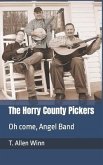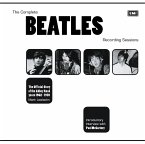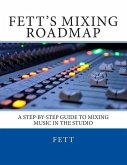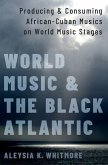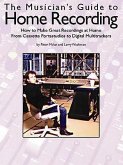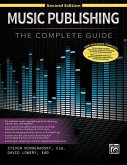Practiced internationally between 1960 and 2000, opera piracy (the illegal practice of recording live operatic performances in the opera house) was rampant. How fortunate! Because of pirating, we now have documentation of famous voices as they sounded in real life, not as they were altered in the sound chambers of recording companies. The author guides opera lovers about what to listen for in a singer's voice and performances. He discusses a performer's individual singing characteristics in specific roles (and, sometimes, their shortcomings) and, occasionally, specific performances of those roles. Bootlegged recordings can even provide a comparison between a star's performance of a role on Tuesday to one sung on Thursday while comparing both of those to commercial recordings of that role. There are in-depth technical discussions of the singing abilities and the recording histories of such stars as Magda Olivera, Leyla Gencer, Leonie Rysanek, Faith Esham, Beverly Hoch, Ashley Putnam, Gianna Rolandi, Diana Soviero, Olivia Stapp, Ruth Welting, Sheryl Woods, and many others. Limansky's own expericence is woven into this history of pirating. Who were these pirates? How did they get away with it? (They didn't always.) How and where did they do their recording? The author, a pirate himself, tells us. He examines the moral dilemma of being a pirate while performing, himself, as a professional musician. What did the stars think of pirating? Many promoted the practice. Why? Publicity was part of it. Limansky clarifies the rest of it. The book includes a rare, previously unpublished interview that the author conducted with the great American soprano Roberta Peters in 1985. It includes an analysis of her recorded legacy; both commercial and pirated. The author: Nicholas Limansky studied voice at Peabody Conservatory in Baltimore and has a performance degree from the University of West Virginia. He has sung with professional choral groups in New York City that include The Bach Aria Group, Musica Sacra, New York Choral Artists (New York Philharmonic), Opera Orchestra of New York, The Netherlands Ballet, and Alvin Ailey ( Revelations and Rainbow Round My Shoulder). He has written performance reviews for the Italian publication, Rassegna Melodrammatica and reviewed new vocal releases of historical singers for Opera News, The Record Collector, Classical Singer, and Opera Quarterly. He lectures at the New York Vocal Record Collectors Society and has long been a member of its board of directors. Limansky has written a career overview and critical analysis of the 1950s Peruvian singer, Yma Sumac titled Yma Sumac: The Art Behind the Legend, published by YBK Publishers. It is considered the definitive work on this then-famous mid-twentieth-century artist. Limansky has also written Early 20th Century Opera Singers: Their Voices and Recordings from 1900-1949 published by YBK Publishers. This work, Pirates of the High Cs: Opera Bootlegging in the 20th Century is the third of Limansky's YBK books.
Hinweis: Dieser Artikel kann nur an eine deutsche Lieferadresse ausgeliefert werden.
Hinweis: Dieser Artikel kann nur an eine deutsche Lieferadresse ausgeliefert werden.



